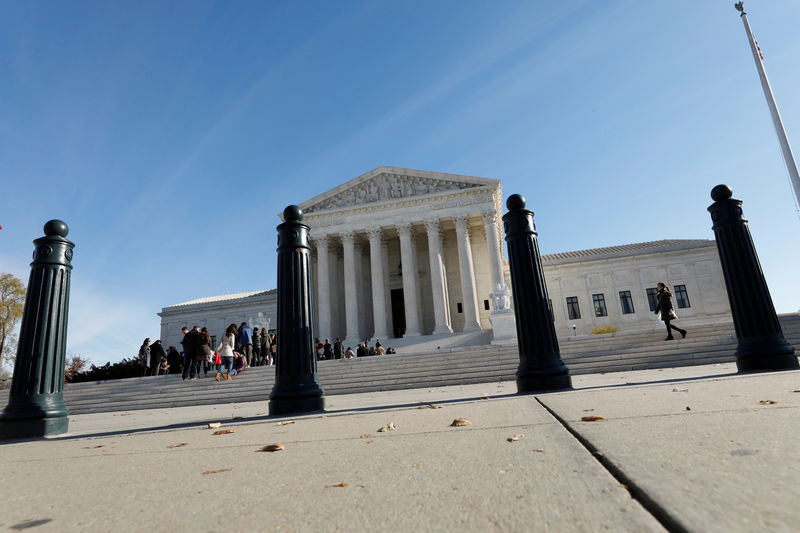By Andrew Chung
WASHINGTON (Reuters) - Conservative and liberal U.S. Supreme Court justices on Tuesday appeared reluctant to broaden protections for corporate insiders who blow the whistle on securities law violations or fraud by their companies.
During an hour-long argument in the case, several justices signaled that they believed the 2010 Dodd-Frank Wall Street reform law at the center of the dispute does not protect those who report the violations only internally instead of to the U.S. Securities and Exchange Commission.
The case involves Digital Realty Trust Inc's (N:DLR) appeal of a lower court ruling in favor of a fired executive, Paul Somers, after he complained internally about alleged misconduct by his supervisor but never reported the matter to the SEC.
The case will determine the scope of the shield against employer retaliation provided to whistleblowers under the Dodd-Frank law. A ruling by the nine justices favoring Digital Realty could deter individuals from reporting misconduct to management and potentially spare companies from certain whistleblower lawsuits.
The San Francisco-based real estate investment trust company, which owns and develops data centers, said the Dodd-Frank law explicitly defined a whistleblower as someone who provides information to the SEC, and therefore does not cover Somers.
Many of the justices' questions on Tuesday indicated they agreed that the text of the law is clear, leaving little room for them to interpret it more expansively.
Liberal Justice Elena Kagan said Congress probably did not mean to limit protections through the law's definition of whistleblower, but added, "It says what it says."
"How much clearer could Congress have been?" conservative Justice Neil Gorsuch asked.
Liberal Justice Ruth Bader Ginsburg noted that the court normally follows statutory definitions unless it leads to an absurd result.
SEC rules adopted in 2011 bar corporate employers from retaliating against whistleblowers who try to report allegations of securities law violations or fraud. They provide the SEC the power to offer monetary awards to whistleblowers whose tips lead to successful enforcement actions.
Somers and President Donald Trump's administration argued that whistleblower protections must extend to those who speak up internally in order to encourage people to report misconduct without fear of being fired.
SARBANES-OXLEY LAW
Liberal Justice Stephen Breyer said people left unprotected by the Dodd-Frank law still would have whistleblower protection under another federal law called the Sarbanes-Oxley Act of 2002, but it offers a shorter time frame for filing a whistleblower lawsuit.
Daniel Geyser, Somers' attorney, said his client missed that deadline and added that not everyone "who's not a lawyer" is aware of all their whistleblower options under federal law.
Geyser noted that the Dodd-Frank whistleblower provisions were needed because after the 2008 financial crisis, "Congress recognized that Sarbanes-Oxley had been ineffective in getting lawyers and auditors and other employees to report internally."
Somers, who worked from 2010 to 2014 as a portfolio-management vice president at Digital Realty, said he was fired because of allegations that he reported to senior management that his supervisor had eliminated some internal controls, hid major cost overruns and granted unsubstantiated payments to friends, according to court papers.
He sued in 2014, saying he was protected from retaliation as a whistleblower under the Dodd-Frank law.
A federal judge refused the company's bid to quash his claim, saying the law covered a wide array of disclosures by whistleblowers, not just those who report to the SEC. The San Francisco-based 9th U.S. Circuit Court of Appeals upheld the ruling in March, and Digital Realty appealed to the Supreme Court.
The Trump administration in a brief said that Digital Realty's interpretation of the law would weaken internal corporate compliance programs and "substantially diminish the retaliation prohibition's deterrent effect."

A ruling is due by the end of June.